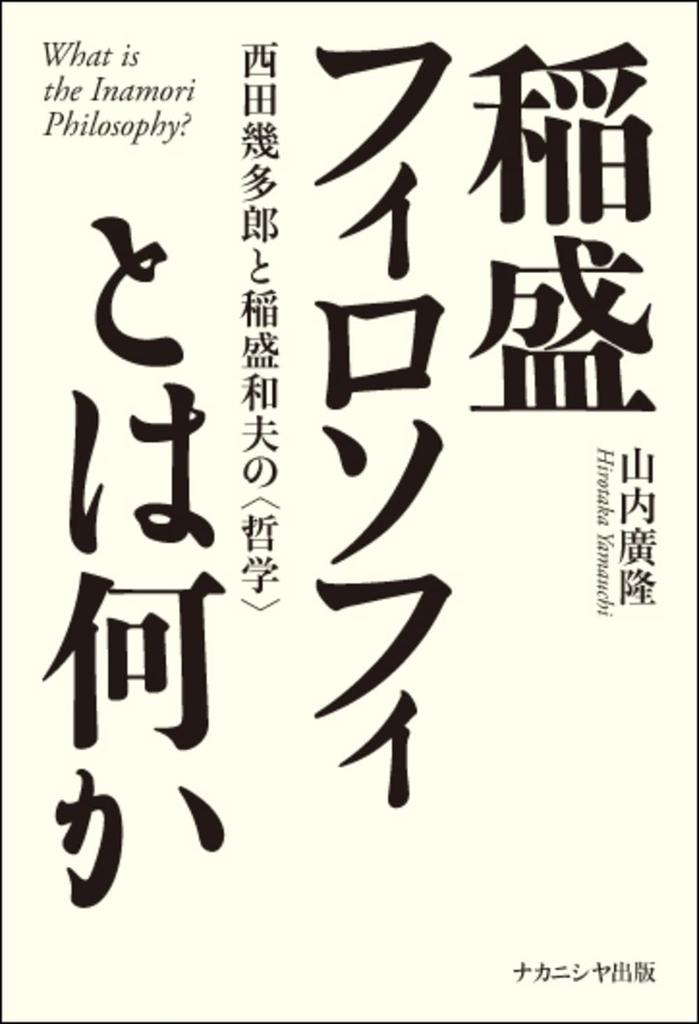Why did Kazuo Inamori criticize philosophers' laziness?
His philosophy, which considers "refining the mind" to be "philosophy," is placed within the framework of Japanese philosophy represented by Kitaro Nishida. This book is a bold attempt by an orthodox philosopher to interpret "Inamori philosophy."
About the Author
Hirotaka Yamauchi
Born in Kagoshima City in 1949.
Graduated from the Faculty of Law and Letters, Kagoshima University in 1975.
Withdrew from the Graduate School of Letters, Hiroshima University in 1982 after completing the doctoral program.
Currently Professor at Yasuda Women's University. Professor Emeritus at Hiroshima University. Ph.D. in Literature. Specializing in Western Modern Philosophy. His publications include "It's Getting More and More Boring: From Nishida Kitaro to Tanabe Gen" (Nakanishiya Publishing, 2023), "Tanabe Gen's Political Philosophy: Tracing His Thoughts During and After the War" (Showado, 2021), "Excessive Ideals: What Drives the Nation to War" (Koyo Shobo, 2019), "The Philosopher Who Led Emperor Showa to Accept the Potsdam Declaration: Nishi Shinichiro's Lecture in 1943 and Its Surroundings" (Nakanishiya Publishing, 2017), "Considering Our Place in the World from Hegel's Perspective" (Koyo Shobo, 2014), "The Stirrings Towards a Hegelian Philosophical System: From Fichte to Hegel" (Nakanishiya Publishing, 2003), "Environmental Ethics" (Maruzen, 2003), and others.
●Main Contents
Legend
Preface
I. Kitaro Nishida and Kazuo Inamori
1. The Intersection of Kitaro Nishida and Kazuo Inamori
2. Kitaro Nishida
--The Fall of Youth
1. Kitaro Nishida, a Selected Student at Imperial University
2. Kitaro Nishida, a Meiji Revolutionary Fighter
3. From Subjugation to Tomorrow
II. Characteristics of Japanese Philosophy
3. Rikizo Nakajima's View of Thomas Hill Greene
1. Greene's View of Humanity
2. The Scope of Greene's Moral Value Judgments
3. Greene's View of "Freedom" and Idealism
4. Greene's View of "Freedom" "Self-interest" and "Altruism"
5. Green's Political Philosophy
--The Realization of Personality in the State
6. Green's View of the State
4. Nishida Kitaro and Thomas Hill Green
1. Nishida Kitaro and Green
2. Nishida Kitaro and Green's Common Good
5. Nishida Kitaro's "Practice" in "An Inquiry into the Good"
1. Will and Action
2. Is Nishida's Philosophy Idealistic?
6. "Freedom" of the Will and Action in Nishida Kitaro's "An Inquiry into the Good"
1. Action and Will 66
2. "Freedom of the Will" 68
--"When the Strength of the Bond Becomes Compulsive"
3. "Freedom of Will" 73
--"When the Strength of the Bond is Not Compulsive"
III. What is Philosophy?
7. What is Philosophy?
--The Significance of the Philosopher Socrates
1. The Birth of the Philosopher Socrates
2. Hegel's Sophists
3. Hegel's Socrates
4. The Fate of Socrates
IV. What is the Inamori Philosophy?
8. The Inamori Philosophy and Political Philosophy
1. Socrates and Political Philosophy
2. Kazuo Inamori and Political Philosophy
9. The Foundation of Inamori's Philosophy of Life
1. Efforts Are Always Rewarded
2. God and Humanity
3. On "Freedom"
4. Inamori's View of Freedom and Related Topics
5. A Sudden Impact
--Big Motor In the Case of Kazuo Inamori
10. The Foundation of the Inamori Philosophy
--The Spirit of Altruism (1)
1. The Spirit of Altruism
--The Case of Green
2. The Spirit of Altruism
--The Case of Kitaro Nishida
11. The Foundation of the Inamori Philosophy
--The Spirit of Altruism (2)
1. The Spirit of Altruism
--The Case of Kazuo Inamori
2. Four Examples of "The Spirit of Altruism"
12. Considerations on Inamori's "The Spirit of Altruism"
1. Living in Hell
2. The "Upward Path" and the "Downward Path"
3. A Biological View of "The Spirit of Altruism" and the Inamori Philosophy
Conclusion
--The Inamori Philosophy as a Synthesis of Ideals (Saigo) and Reality (Okubo)
〈List of Citations and References〉
Afterword - Kazuo Inamori and His Culture
Subject Index
Name Index








![Breathing Book [Kokyū No Hon]](https://img.joomcdn.net/b126724ed32ea5d4a69cdcc54f710711fdf6b2b5_78_100.jpeg)


![[Bold Large Print Book] Yanagibashi Monogatari: Read Shugoro Yamamoto's Works In One Go Without Wearing Glasses](https://img.joomcdn.net/ffcde987c7378df47743c04b3f8e4a24a977c992_70_100.jpeg)












